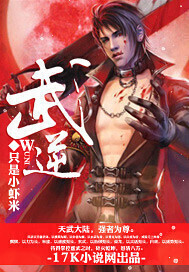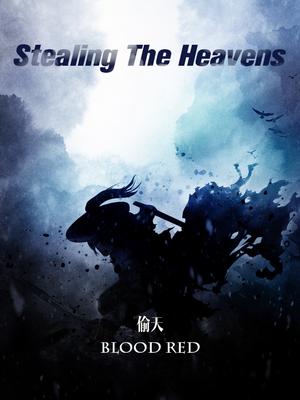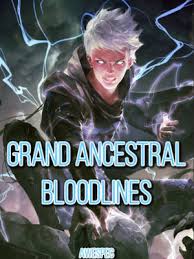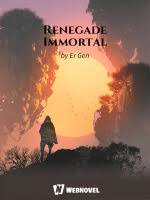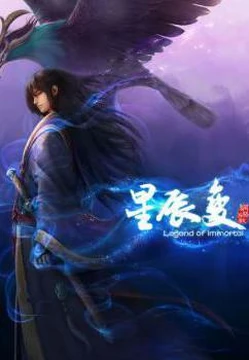The Story in 3 Sentences
Feng Hao begins as the scorned young master of the Feng family, wrongly labeled as talentless despite possessing a rare godly physique, until a fateful encounter with mysterious gemstones unlocks his true potential and sets him on an extraordinary cultivation path .
His journey transforms from personal redemption to cosmic significance as he masters the void and explores the far reaches of the universe, battling against powerful enemies and challenging the very heavens with his unique abilities .
The narrative expands from earthly sect conflicts to multidimensional warfare as Feng Hao evolves from a mocked youth to a supreme cultivator capable of breaking the universe itself, all while retrieving his dignity and establishing his supremacy across realms .
Why It Stands Out
1. The Gemstone Cultivation System
This novel introduces a unique cultivation methodology centered on infusing the body with rare gemstones, a departure from traditional meditation or pill-based advancement systems . Feng Hao’s transformation through this extraordinary process creates a visually distinctive and imaginative power progression system that differentiates it from standard xianxia templates. The gemstone integration not only enhances physical capabilities but also enables mastery over spatial and void energies, allowing for creative combat techniques and exploration narratives that extend beyond conventional cultivation realms .
2. The Underdog’s Concrete Validation
While many cultivation novels feature underestimated protagonists, Martial Inverse provides tangible validation for Feng Hao’s early struggles by establishing that his supposedly worthless physique is actually a rare, heaven-bestowed godly body with emperor veins . This twist reframes the common “trash to treasure” narrative into a story of misunderstood potential finally recognized, creating a satisfying psychological payoff for readers who enjoy seeing underestimated characters prove their worth. The concept of emperor veins and divine physical foundations adds scientific-like specificity to the protagonist’s special nature rather than relying on vague chosen-one tropes .
3. Cosmic-Scale Martial Ambition
The novel distinguishes itself through its expansive scope that progresses from family conflicts to universal domination, with Feng Hao’s journey ultimately aiming to “break the universe” itself . This grand ambition moves beyond typical immortality-seeking goals to present a more dramatic cosmological confrontation between an individual cultivator and the fundamental structure of reality. The scale of progression encompasses multidimensional travel and mastery over cosmic principles, offering readers an epic sense of escalation rarely seen even within the xianxia genre .
Characters That Leave a Mark
There’s Lao Lao – The mysterious mentor residing within Feng Hao’s body who initially absorbs his qi, mistakenly making him appear talentless, but later becomes his guide and teacher in the unique gemstone cultivation system . This character exemplifies the novel’s approach to mentorship relationships, where initial obstacles transform into valuable guidance, creating a complex dynamic that drives both conflict and progression throughout the narrative.
You’ll meet Yun Ying, who represents both the initial humiliation that motivates Feng Hao and the complex relationships he develops throughout his journey . Her character illustrates the novel’s exploration of how perceptions of strength and talent can be misleading, and how former adversaries can become significant figures in the protagonist’s development, though some readers find these relationship dynamics underdeveloped.
And Feng Chen? They’re the one who plays a crucial role as Feng Hao’s father, representing the family dynamics and personal history that ground the protagonist’s journey in emotional stakes beyond mere power acquisition . His relationship with Feng Hao adds depth to the narrative by exploring themes of familial duty, pride, and the personal costs of cultivation struggles.
The Flaws Fans Debate
The novel faces significant criticism for its reliance on familiar xianxia clichés and tropes, with many readers noting the plot follows predictable patterns seen in other popular works in the genre . This tendency toward conventional storytelling structures can make the reading experience feel derivative despite the novel’s unique elements, especially for readers well-versed in cultivation literature.
Many readers criticize the translation quality, noting that awkward phrasing and unclear cultural references can hinder comprehension of the novel’s more subtle elements . This issue is particularly problematic given the complex cultivation system and unique terminology, making some sections challenging for international audiences to fully appreciate despite the story’s potential depth.
Several reviewers note that character development often takes a backseat to power progression, with relationships and personal growth sometimes feeling secondary to cultivation advancements . This issue is particularly noticeable in romantic subplots and complex interpersonal dynamics, which some readers feel lack the depth and nuance found in more character-driven xianxia works.
Must-Experience Arcs
Ch. 1–100: The Awakening – This foundational arc establishes Feng Hao’s initial struggles as the scorned young master and his transformative encounter with the mysterious gemstones, setting up the unique cultivation system that defines the entire novel . The emotional payoff of his early vindication against those who mocked him creates a satisfying foundation for the epic journey to come, while introducing key characters like Lao Lao and establishing the core conflict dynamics.
Ch. 500–700: The Void Mastery – A crucial progression where Feng Hao moves beyond conventional cultivation to explore spatial energies and multidimensional travel, expanding the novel’s scope from earthly conflicts to cosmic exploration . This arc demonstrates the full potential of his gemstone-enhanced abilities and introduces more sophisticated applications of his unique powers, marking his transition from regional powerhouse to cosmic-scale cultivator.
Ch. 1000–1200: The Universal Confrontation – This late-game arc represents the culmination of Feng Hao’s ambition to “break the universe” as he challenges cosmic principles and celestial powers . The scale of conflict reaches its peak here, delivering on the novel’s promise of moving from personal redemption to reality-altering confrontation, with stakes that encompass multiple dimensions and fundamental universal laws.
Killer Quotes
“One day I’ll laugh, and I’ll laugh at the heavens! Godly body shall accomplish completion, to break the universe!”
“The world as the enemy, fighting alone in all directions. His dignity must be retrieved!”
“A waste? No, a genius! Emperor veins bestowed by the heavens. A crippled body? No, a godly body!”
Cultural Impact
The novel has spawned both a manga adaptation with over 556 translated chapters and an anime adaptation (also known as Wu Ni or Martial Rebel) that aired from November 2024 to April 2025, consisting of 30 episodes produced by Tencent Video . These adaptations brought Feng Hao’s story to a broader audience, though some viewers criticized the animation quality as being behind current industry standards and noted the challenge of adapting the complex cultivation system visually.
Despite its mixed reception internationally, the novel maintains a dedicated fanbase that appreciates its unique gemstone cultivation system and satisfying underdog narrative . The webnovel’s extensive length (over 4,500 chapters translated and ongoing) demonstrates its staying power and ability to maintain reader engagement over the long term, though some critics argue the story becomes repetitive in its later stages.
The series has inspired active wiki communities that meticulously document its complex cultivation system, character relationships, and plot developments . These fan resources highlight the detailed world-building that keeps readers invested in the novel’s extensive narrative despite some criticisms of conventional storytelling, and demonstrate how the novel has cultivated a dedicated following within the xianxia community.
Final Verdict
Start Here If You Want:
A cultivation novel with a uniquely visual and tactile power system based on gemstone integration rather than traditional meditation or pill consumption, offering a fresh perspective on how cultivators might advance their capabilities .
An underdog story that provides relatively early validation for the protagonist’s struggles, validating reader investment without prolonging the humiliation phase excessively before demonstrating the main character’s true worth .
A narrative that escalates from personal and familial conflicts to truly cosmic-scale confrontations, delivering on the grand ambition promised by the xianxia genre’s tendency toward exponential power progression .
Study If You Love:
Exploring unconventional cultivation methodologies that depart from standard Daoist-inspired systems, particularly those that incorporate more physical or material components into spiritual advancement .
Stories that balance serious cultivation progression with occasional humorous elements and unconventional characters, creating a tone that doesn’t take itself too seriously despite the high stakes .
World-building that encompasses both detailed mortal realm societies and expansive cosmic realms, providing a comprehensive journey through multiple levels of existence within a single narrative .
Avoid If You Prefer:
Highly sophisticated character development and complex psychological portraits, as the novel tends to prioritize plot progression and power advancement over deep emotional exploration or moral ambiguity .
Consistently excellent translation quality with careful attention to cultural nuances, as some readers find the English version occasionally awkward or confusing in its phrasing .
Extremely innovative plotting beyond the core cultivation concept, as the narrative structures and character relationships often follow established genre conventions rather than breaking new ground in storytelling .
s
